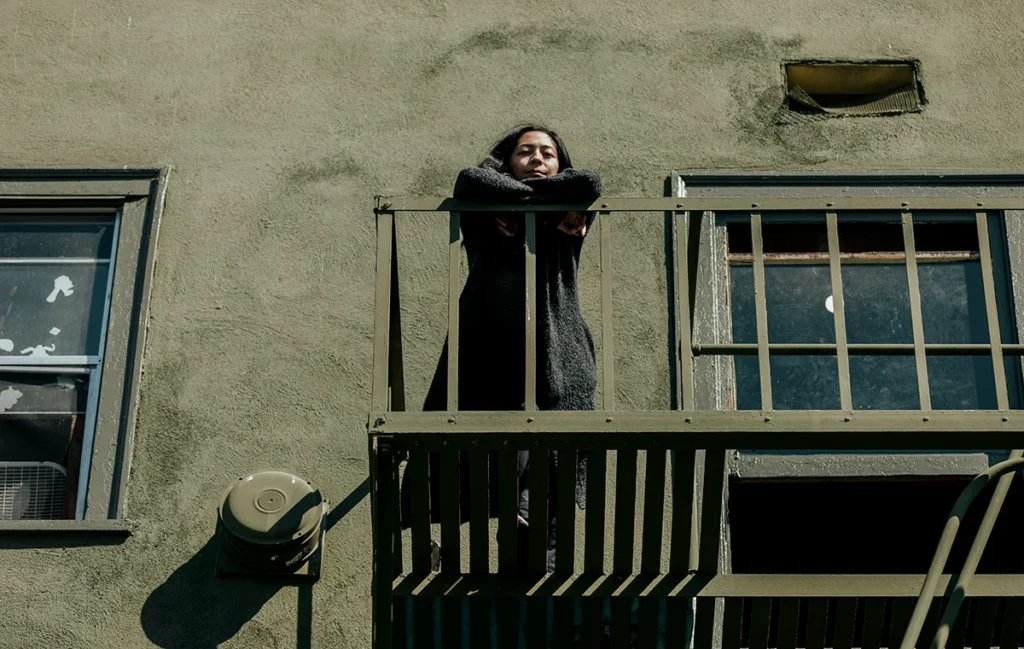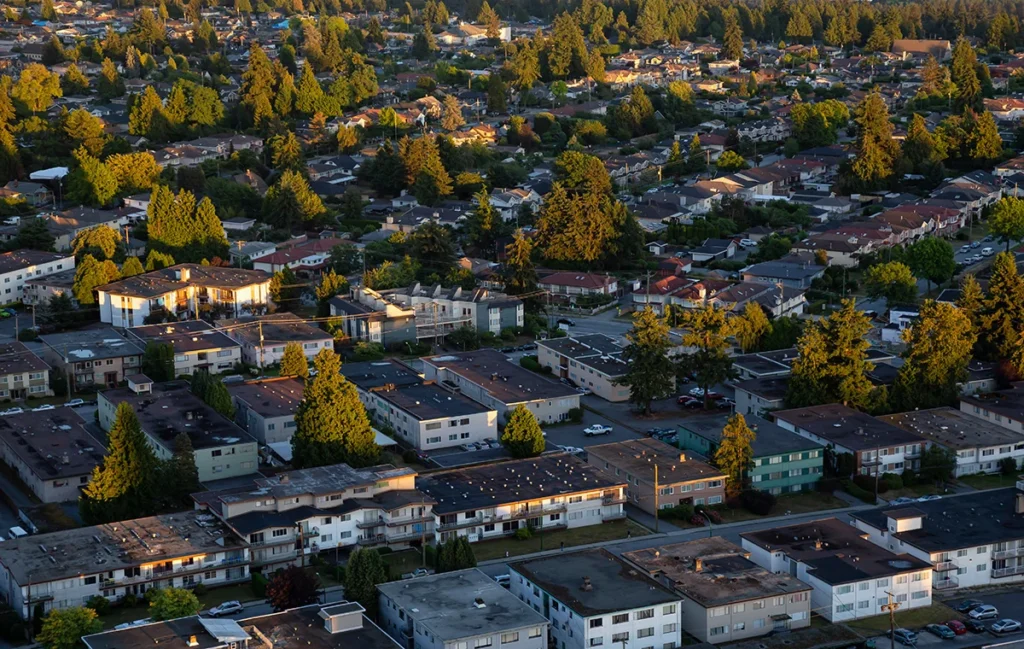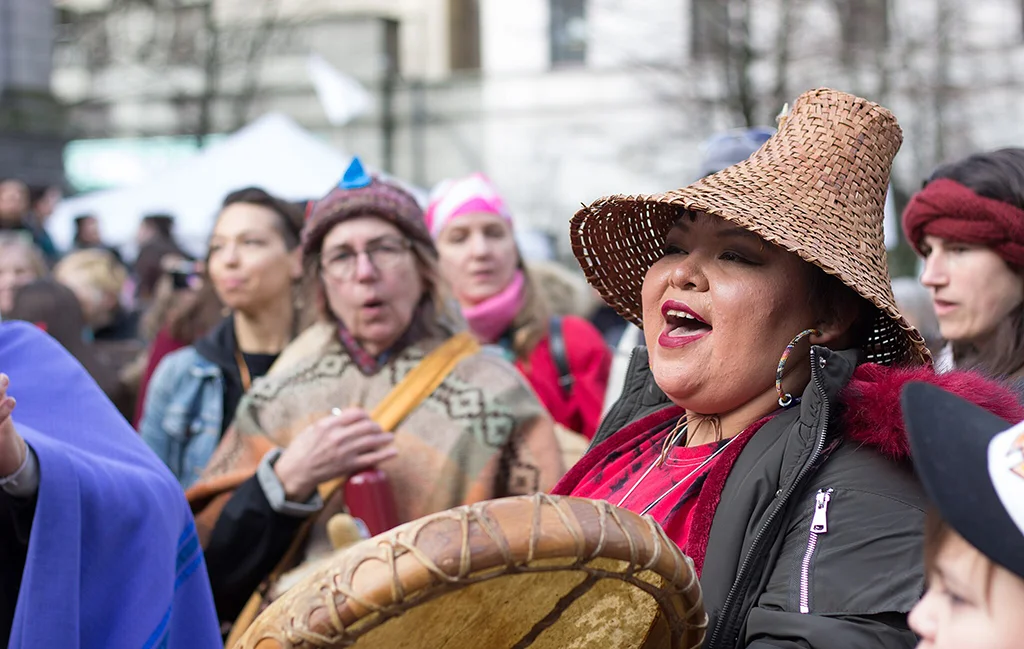The term “carceral continuum” brings to mind an array of institutions—prisons, hospitals, mental health facilities, and low-income housing—that function to surveil, control, and manage society’s most marginalized. In Vancouver’s Downtown Eastside, where addiction, homelessness, and poverty converge, this term has become a lens through which to examine the role of social housing in perpetuating cycles of surveillance and regulation.
Initially popularized by Michel Foucault in Discipline and Punish, the concept of the carceral continuum critiques the subtle yet pervasive forms of control embedded within societal structures. Today, its relevance extends beyond prisons to include a broad range of institutions that govern marginalized populations—non-profit housing being one such institution. But does the supportive and transitional housing in the DTES embody this continuum, or do these programs serve as lifelines for people with few alternatives? This investigation explores the nuances of social housing in Vancouver, examining whether these programs are containment tools or critical support systems in an overwhelming housing crisis.
Defining the Carceral Continuum
Foucault’s carceral continuum presents a critical view of how society’s institutions—prisons, hospitals, and housing systems—intersect to manage marginalized individuals. In Canada, this framework is often linked to the legacies of colonialism, systemic racism, and economic disenfranchisement, which disproportionately affect Indigenous and racialized communities.
In the context of Vancouver’s DTES, supportive housing programs are scrutinized for their roles in perpetuating these dynamics. Strict program agreements, mandatory sobriety rules, identification checks, and collaborations with law enforcement contribute to a controlled environment that mirrors the surveillance-heavy systems found in correctional institutions. Housing managers report residents to the police based on subjective criteria, while rules governing visitors and curfews can feel more like restrictions than safeguards. These practices highlight the tension between offering support and enforcing control.
However, some critics caution against an oversimplified interpretation of the carceral continuum. While elements of surveillance are undoubtedly present, social housing programs also provide essential services, fostering stability for individuals who face immense social and health challenges. Striking the right balance between regulation and empowerment remains key to understanding these programs’ true impact.
Supportive Housing
In the DTES, supportive housing provides a lifeline for individuals dealing with homelessness, addiction, and mental health issues. These programs are designed to stabilize lives, offering shelter, safety, and access to health services. But their implementation often draws criticism. Many housing units come with a series of strict rules—sobriety, guest restrictions, curfews—that, although framed as ensuring safety, can alienate residents, leaving them feeling trapped rather than empowered.
The housing crisis in Vancouver has further complicated this picture. The cost of private apartments exceeds the monthly income of many on social assistance, leaving these individuals with little choice but to accept the conditions of supportive housing programs. Critics argue that these programs, in their current form, restrict autonomy and exacerbate feelings of dependence, turning what should be a supportive environment into an isolated one.
Despite these criticisms, proponents of supportive housing highlight its necessity. For many, it provides the only chance at stability in a city with scarce affordable housing. The challenge lies in how these programs can evolve—striking a delicate balance between providing essential support and not replicating systems of control that entrench dependency and marginalization.
Transitional Housing
Vancouver’s reliance on transitional housing as a response to the housing crisis has grown dramatically between 2021 and 2023. Framed as temporary solutions to the housing shortage, these spaces are often described as providing a stepping stone out of homelessness. However, for many residents, they become yet another temporary holding pattern, one with few rights, limited autonomy, and little hope of transitioning to permanent housing.
These programs operate in a legal grey area, leaving tenants vulnerable to eviction without notice and with minimal legal recourse. Transitional housing is often marked by rules that mirror those of incarceration—eviction for minor infractions, curfews, and the inability to live with family members. For critics, these measures are a subtle but powerful form of social control, perpetuating cycles of exclusion rather than fostering pathways to long-term recovery.
Yet, for others, transitional housing represents a necessary step toward stability and reintegration. It offers a safe space, a reprieve from the streets, and a platform for accessing other support services. The question is whether these programs can evolve into more than just temporary relief or if they will remain as transient spaces that trap vulnerable populations in precarious situations.
The Role of Law Enforcement
The collaboration between housing providers and the Vancouver Police Department is one of the most controversial aspects of the DTES housing system. While the police are often called upon to enforce policies designed to maintain order, critics argue that this collaboration leads to the criminalization of poverty and addiction.
For example, when a tenant is incarcerated for more than three months, the provincial government halts their rent payments, often resulting in eviction. This policy, combined with the reporting of residents to the police by housing managers, creates a system that criminalizes the very people these programs are meant to help. For many residents, this feedback loop heightens the risk of homelessness, incarceration, and a return to the streets.
Supporters of these practices argue that law enforcement is necessary to ensure safety and protect vulnerable populations. They contend that collaboration with the police helps mitigate risks and keeps housing units secure. However, this perspective raises deeper concerns about how justice is distributed in marginalized communities and whether involving law enforcement in housing decisions exacerbates the very challenges these systems are meant to alleviate.
Toward Transformative Solutions
While the carceral continuum provides a compelling critique of DTES housing, the framework alone cannot capture the issue’s complexity. Social housing is neither wholly oppressive nor wholly redemptive—it reflects the systems that created it. Addressing its shortcomings requires more than dismantling existing structures; it demands reimagining them entirely.
One potential avenue lies in resident-led models, where tenants actively shape policies and governance. This shift from top-down management to collaborative frameworks could dissolve some of the power imbalances inherent in the current system. Additionally, increasing investments in permanent, affordable housing would reduce reliance on transitional and supportive programs, offering stability without the strings of conditional support.
The question of whether social housing constitutes a carceral continuum may never yield a definitive answer. However, the debate itself underscores a critical truth: systems designed to support the vulnerable must be held to the highest standards of accountability and compassion. Ultimately, the DTES housing debate is about more than policy—it is about dignity, autonomy, and the kind of city Vancouver aspires to be. Whether the system perpetuates harm or fosters resilience depends on its ability to evolve.
Rethinking Social Housing for Empowerment
Determining if Vancouver’s social housing system is part of the carceral continuum is a complex and layered issue. While elements of control exist, these programs also provide much-needed stability and services to vulnerable populations. The system is far from perfect, but it is a necessary response to a growing crisis of homelessness and addiction in the city.
However, significant reforms are needed to move forward. Rather than dismantling the system, the focus should be on redesigning it—incorporating tenant rights, increasing transparency, and addressing systemic barriers perpetuating marginalization cycles. Long-term solutions require more housing and a reimagining of what supportive housing can be: a system that prioritizes autonomy, dignity, and opportunity over regulation and control.
By acknowledging the complexity of these issues and acting with compassion, Vancouver has an opportunity to transform its housing policies into a model for other cities grappling with similar crises. The real challenge lies in striking a balance between the immediate need for safety and long-term solutions that address the root causes of homelessness and addiction. Only then can the DTES evolve from a symbol of systemic failure to a space of genuine empowerment and recovery.
Denise is a long-time advocate for affordable and dignified housing in the Downtown Eastside. Having lived in SROs and volunteered in homeless shelters, she brings a personal understanding of the housing crisis and its impact on the community. Her work reflects years of lived experience, frontline work, and commitment to creating better living conditions for DTES residents.







Leave a Comment